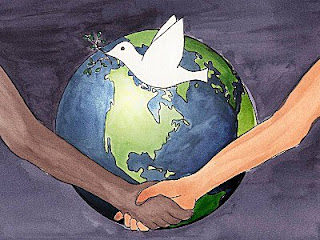
Calls of “Chai, cold drink, paani bottle,” echoed as poorly uniformed salespersons frequented the overcrowded second- class compartment of the Howrah- Guwahati train. These constant sales pitches did not bother me as much as a rat I spotted under the berth of the passengers seated opposite me did; I screeched and tried to draw attention to the little rodent; clearly, this was not a novelty for the other travelers as they paid little attention to what I was saying. I had insisted that my cousin book a second-class ticket, “… to get the whole experience,” and despite his and my aunt’s constant “buts”, I refused to give in, and now, there was only regret. Tightening the grip on all three of my bags, I prayed to Allah, Bhagwan, Lord, and God as if they weren’t just different names for the same supreme beings, and I was in the midst of the second Battle of Panipat, as was fought by the Mughal Emperor Akbar against Adil Shah Suri and his minister Hemu in 1556. “Never again, never again will I travel via second class…if only I had listened,” were thoughts that shadowed my mind. It had only been a few years since I had moved to America, but the comfortable life had begun to sink in, making it difficult to re-adjust to the life in India.
Fortunately, for me there were two university students traveling in the same compartment. They were returning home for the break and seemed sympathetic to my situation. One of them, studying tourism helped me compile a list of places to visit in the northeast and suggested I stay at Hotel Raj Mahal in Guwahati. She pulled out some brochures from her project file carefully packed between clothes in her suitcase, which she had fastened to the seat handle with a metal chain. The girls offered to help store my bags under the seat as well, but I declined the offer; the rat had ruined it for me. I was glad for their company for I wouldn’t know how else to spend the long hours. A couple of the salesmen were selling 40 and 80 GB flash drives, and I was dumbfounded as I knew that Staples, a major office supply store in America did not sell flash drives with half as much memory space. Yet, I was here in a second-class train compartment and had the opportunity to purchase one for Rs. 1000 (approximately 20 USD). The salespersons somehow seemed unwavering to my requests, and would not allow me to snap a picture of the flash drives. After an uncomfortable and sleepless over night journey, (I had my leg elevated on my suitcase, my back pack as a pillow, and the bag containing home cooked meals, fruits and snacks on my side) we had finally arrived at our destination.
While I had survived the bloodshed at the second battle, little did I know that another army was anticipating my coming, the force of this one was nothing short of the army at the third Battle of Panipat in 1776; well, close enough. Did I mention that I had survived the first battle when I managed to arrive safely in Kolkatta (formerly Calcutta) from Pune, followed by my narrow escape from my bizarre experience with a pundit at ‘Goddess Kali Ghat’ at 5 a.m.? He was trying to sell me Rs.200 worth of prasad (holy sweets). Fortunately, I spotted a police station and took refuge there until shops opened three hours later. It was not my cup of tea trying to squeeze my way through a mob which was trying to leave, and one that was trying to enter the station. I heaved a sigh of relief as I stepped out; I had miraculously endured all the three Panipats and I was not terrified to say the least. I boarded a cycle-rickshaw, enjoying the view as the rickshaw wallah peddled to Hotel Raj Mahal. Soon however, I realized that this trip had lasted longer than five minutes, the time I was told it would take to arrive at the hotel; of course, the driver had peddled the rickshaw via the longer route, to demand a higher wage. We argued and he settled for Rs. 100, which I would later learn was too high a price for the distance I had traveled.
I checked into the hotel, took a warm shower and a short but refreshing nap, waking to a knock on the door. A server was delivering my order of masala (spiced) chai. That evening I took a little stroll exploring the busy city area surrounding the hotel, stopping only briefly to speak with the locals about the bomb blasts, one of which had exploded the day I boarded the train for Howrah. “It is difficult at this point to say who is responsible, but whoever did this was trying to send a message to Chidambaram,” said a hardware store owner who refused to be identified. His employees stood behind him nodding. Three bombs had exploded in crowded market places hours before Home Minister P. Chidambaram was to visit the state. The first of the January 1 blasts took place at Birubari around 2.35 p.m. It was followed by blasts at Bhootnath at 4.15 p.m. and at Bhangagarh an hour later. It wouldn’t be suitable to say this, but I thought it was ironic that the names of all three affected areas started with a “B”. Improvised explosive devices (IEDs) were used, according to reports in major national and local newspapers.
While investigations were on going, it was believed that banned United Liberation Front of Assam (ULFA) militants were responsible for five fatalities and 35 injuries as a result of the blasts. G.M. Srivastava took over as Assam’s chief of police after the October 2008 blasts. He was quoted in the Indian Express saying, “We believe the blasts are the handiwork of ULFA. We had inputs that some members of ULFA’s 709 Battalion have sneaked into the city over the past few days. We have been on their trail for quite some time.” From newspaper reports and from speaking with the hotel staff, I learnt that the government was aware that the militant group was planning the attacks. Chief Minister Tarun Gogoi in an interview to the press had said, “It is not that we did not have prior information. We had inputs, and it was because of steps taken that the impact was less.” It was a shame that despite these precise tips the government had failed to prevent the blasts. The bombs were planted in a trashcan, on a bicycle and in a busy vegetable market. As a result of such negligence on the part of the police and the government, I was not surprised when while attending a prayer meeting, I witnessed a protest led by the Bhartiya Janta Party (BJP) political group carrying signs that read, “Our government has failed to protect us,” three days after the second set of blasts in a crowded marketplace near the Maligaon railway crossing market in Guwahati. Three people were killed and ten injured when a bomb believed to have been strapped to a bicycle, parked between two scooters, exploded. This brought the total death toll to nine.
“Cars were damaged and the wounded were rushed to local hospitals,” said Bakul Ghose, leader of Indian National Trade Union Congress, also a well-known social worker in the community. Considering that the police and army had gunned down 20-year-old Pranjal Deka, believed to be the main suspect in the prior bombings, the day before, it was unclear who would claim responsibility for the explosion on Friday. “We don’t know who is responsible; it is the police’s job to find out. We are only community members who are concerned with the human side of things,” said Ghose as she and her friends scanned the area for potential stationary vehicles. Police security while scarce was scattered around the area, and several community members were preparing for a Nam- a prayer ritual for the victims and their families. I was surprised at their hospitality and enthusiasm. As a journalist, I had traveled from Atlanta, Georgia to cover the story and this meant a great deal to them. Because of this they did all they could, despite my urges for them not to, to see to my comfort. Market committee members Moon Moon Sarnah, Bakul, and their secretary Budu Das were extremely patient as I learnt the names and significnace of various motifs, instruments including the nagara, and bhajans as part of the ritual. The local media, Das said, had chosen not to show up, despite them being aware of the event; I was surprised.
Following the pooja, the guru invited me to come to the microphone and address the public. I hadn’t expected this and didn’t know what to say. Bakul, Sarnah, and others gathered around as the main pundit put a white scarf around my neck. I was being honored as a journalist by the local community and this gesture brought tears to my eyes. “Please accept my condolences, I am not sure why and who did this, but know that you have at least one person, me, who pledges to bring an end to the hatred that reigns the world today and I am not alone in this fight.” Loud cheers and claps followed my Namaste; I held back my tears.Ghose, Surnah, two of their friends and their sons treated me to a cup of chai and mithai (sweets) in a local dhaba. While I enjoyed my conversation with the ladies about Bhogali Bihu, a festival that is celebrated at the end of the harvesting season in Assam and in many parts of the northeast, their sons were more interested in American pop culture. We exchanged our contact information, following which they insisted that I let their driver drive me home; I accepted and continued chatting with the ladies, who only a few moments ago had conferred upon me such honor. Today, I continue to stay in contact with these wonderful individuals, to strengthen a relationship that started quite unexpectantly.






